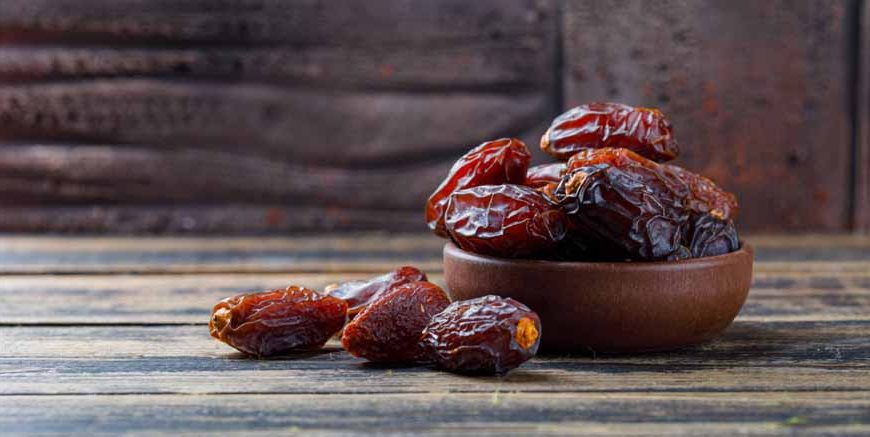We all want the best for our kids, especially regarding their health. Isn’t it? But let’s be honest with ourselves… Getting them to eat healthy can be a real challenge. With our busy schedules, grabbing a quick snack is so tempting. But what if that snack could be both tasty and good for them? This is where dates come in. These little gems are delicious and incredibly good for your child. Let’s explore why they deserve a spot in every lunchbox. Let’s find out why. We shall be addressing the benefits of dates, the advantages of eating dates, the nutritional value of dates, and some key dates nutrition facts in this blog.
What Are Dates?
Dates are small, chewy fruits that grow on the date palm tree, native to the Middle East and North Africa. Each kind has a distinct flavour and texture but contains abundant natural sugars that provide a quick energy boost. But dates offer more than just sweetness.
Nutritional Value of Dates
Dates are packed with incredible nutritional value. They’re loaded with essential vitamins and minerals that support your overall health. Here’s a quick look at the major nutrients you’ll find in dates:
Vitamins: B6, A, and K, which contribute towards maintaining healthy skin and eyesight as well as boost the immune system, are some of them
Minerals: potassium (important for heart health), magnesium, and copper (support bone health and energy production, respectively), among others.
Fiber: High amounts of dietary fiber help with digestion by preventing constipation;
Antioxidants: These compounds help fight against oxidative stress caused by free radicals, which leads to inflammation within body tissues. Thus, they lower risk factors associated with chronic diseases like cancer or heart disease—they’re also richly contained here!
Protein in Dates
Although not well known for their protein content, dates do contain small quantities of proteins necessary for the growth and repair of cell tissues, especially in children who are still growing rapidly. In combination with other sources, this can make significant contributions towards meeting daily requirements needed during such periods.
Advantages Of Eating Dates
The benefits of dates are many:
- Energy Enhancer
- Digestive Aid
- Brain Booster
- Stronger Bones and Teeth
- Increased Resistance to Diseases
- Improved Heart Health
Dates have been used since ancient times due to their ability to provide fast energy reserves. Hence, it is considered one of the best snacks parents could pack during school trips, etc., because kids tend to be very active throughout such days. Natural sugars present in dates are easily absorbed into the body system, including glucose, fructose, and sucrose, thus giving an instant energy kick.
Dates’ high fibre content promotes healthy digestion and reduces constipation, which is prevalent among youngsters. Fibre bulks the stool, making bowel movement easier and ensuring the digestive system runs smoothly.
Dates contain natural sugars required for proper brain functioning whereby glucose acts as a primary fuel source for neurons while other types provide a continuous supply thereof, therefore enhancing concentration levels besides memory retention among kids.
Regular intake of minerals like calcium, magnesium and phosphorus from dates contributes greatly towards maintaining good dental health since they play a critical role in promoting stronger bones especially during growth stages when children become more susceptible to fractures etcetera.
Dates contain vitamins and antioxidants that strengthen the immune system. This is especially important for children prone to common illnesses and infections. In other words, including dates in their meals could help improve overall immunity levels and keep them healthy.
Potassium is a vital mineral for maintaining cardiovascular well-being. Dates, which regulate blood pressure and ensure proper heart functioning, provide a good supply of potassium. Teaching kids to eat foods that promote heart health, like those made with dates, may lay a foundation for lifelong cardiac wellness.
How Do I Add Dates To My Child’s Diet?
Incorporating dates into your child’s menu is simple and versatile since they can be taken in different delicious forms. Here are some ideas:
- Date Smoothies;
- Energy Balls Made With Dates;
- Date & Nut Bars;
- Stuffed Dates;
- Date Syrup;
You can blend dates together with milk or yoghurt plus other fruits such as berries, bananas etc., so as to make nutritious yet tasty smoothies perfect for breakfasts or snacks.
Mixing nuts, seeds (optional), cocoa powder (also optional) gives energy balls; these are great packed lunch box fillers but serve equally well as healthy after-school snacks too!
Combine oats, honey roasted peanuts/almonds/cashews etc., alongside chopped up dried fruit pieces like apricots…roll into small balls then flatten slightly onto baking trays lined with greaseproof paper before baking until golden brown around edges – let cool completely before storing an airtight container.
Use date paste filling mixed with any nut butter such as almond/cashew/walnut/hazelnut etc., alternatively, stuff pitted dates full of cream cheese then wrap each one tightly using cling film before refrigerating overnight; this makes them taste really sweet but also adds protein value – giving good fats content too!
Drizzle date syrup over pancakes/waffles/porridge etc., it’s healthier than using refined sugar because there are no empty calories contained within; plus, it adds a lovely, rich flavour profile that compliments well with most breakfast dishes.
Why Are Dates Better Than Processed Snacks?
Given the ready availability and preference often accorded to processed snacks by kids today, we must consider why dates may be a better option. In essence, processed snack foods typically have high levels of added sugars, which promote tooth decay, as well as unhealthy fats that contribute towards overweight issues, among others – not forgetting artificial ingredients known to cause various health problems over time.
On the contrary, however, dates are natural, wholesome alternatives without any junk included: they provide necessary nourishment without all those extras. Consequently, regular consumption of dates can help curb cravings for unhealthy snacks, fostering better eating habits in children. In this light parents should choose dates instead of processed foods so as to ensure their kids receive adequate nutrition without compromising on taste.
Dates Nutritional Information
Here are some key dates and nutrition facts. Knowing dates and nutritional information can assist parents in making informed choices when incorporating these fruits into their child’s diet plan. For instance, one serving size usually consists of about 100g or roughly three large Medjool varieties, which typically contain:
Calories – 277 kcal Protein – 1.8 g Fat – 0.2 g Carbohydrate – 75 g
Fiber-7g Sugar-66g Potassium-696mg Magnesium-54mg
These facts indicate just how packed the dates are with nutrients, thus making them great for growing young ones.
Summary
Indeed, there’s no doubt that the benefits of consuming dates among kids include quick energy boosters, promoting the digestion process, and enhancing brain functions. The nutritional worthiness of important components like vitamins and minerals, apart from antioxidants found in dates, makes them valuable additions to any child’s dietary plan.
At EuroKids, we know how much nutrition matters in a child’s growth. Our curriculum plan and activities aim to achieve healthy eating habits and wellness. Sign up with us so that we can provide your child with a well-rounded education that takes care of their health, too.
















